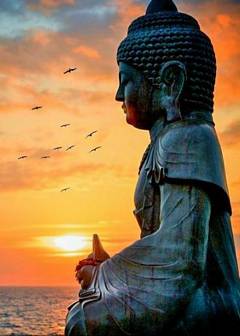

Therefore they displayed words in the midst of wordlessness and handed down forms in the midst of formlessness.
Zen koan meaning free#
What do I mean by according with the buddhas and ancestors? The buddhas and ancestors have been greatly sorrowed to see that sentient beings bind themselves to the realm of birth-and-death and sensual delusion, so that, through the countless kalpas of the past down to the present, none have been able to free themselves. When these koans are understood and accepted, then there will be an end to feeling and discrimination when there is an end to feeling and discrimination, birth-and-death will become empty when birth-and-death becomes empty, the Buddha-way will be ordered. The word kung (ko), or “public,” means that the koans put a stop to private understanding the word an (an), or “case records,” means that they are guaranteed to accord with the buddhas and ancestors. Therefore they stooped to using expedients in order to open up the Wisdom Eye of the people of later generations, hoping thereby to make it possible for them to attain the understanding of the Great Dharma for themselves in the same way. Rather, they did it because they could not bear to think that the Great Dharma might become corrupt. Surely they did not do this just to show off their erudition and contradict the worthy men of old. Occasionally men of former times, in the intervals when they were not teaching, in spare moments when their doors were closed, would take up these case records and arrange them, give their judgment on them, compose verses of praise on them, and write their own answers to them. The so-called venerable masters of Zen are the chief officials of the public law courts of the monastic community, as it were, and their words on the transmission of Zen and their collections of sayings are the case records of points that have been vigorously advocated. They are certainly not intended to be used merely to increase one’s lore and provide topics for idle discussion. It cannot be understood by logic it cannot be transmitted in words it cannot be explained in writing it cannot be measured by reason.It is like the poisoned drum that kills all who hear it, or like a great fire that consumes all who come near it.What is called the “special transmission of the Vulture Peak” was the transmission of this what is called the “direct pointing of Bodhidharma at Shao-lin-ssu” was pointing at this.įrom the time long ago when the lotus flower was held up on Vulture Peak until today, how can there have been only seventeen hundred koans? Yet the koans are something that can be used only by people with enlightened minds who wish to prove their understanding. The koans do not represent the private opinion of a single person, but rather the hundreds and thousands of bodhisattvas of the three realms and the ten directions.This principle accords with the spiritual source, tallies with the mysterious meaning, destroys birth-and-death, and transcends the passions. Now, when we use the word “koan” to refer to the teachings of the buddhas and ancestors, we mean the same thing.

When these public case records (koans) are used, then principles and laws will come into effect when these come into effect, the world will become upright when the world is upright, the Kingly Way will be well ordered. Since Zen in the West is a lay movement, not a monastic one as it is in Japan, Part Two presents koans and commentary drawn from the lives of three great lay figures in Zen.There have never been rulers who did not have public law courts, and there have never been public law courts that did not have case records that are to be used as precedents of laws in order to stamp out injustice in the world.

As Zen begins with the Buddha's life and enlightenment, the three teishos (talks) in Part One are each drawn from an incident in the life of the Buddha. Why was I born? Why must I die? How can I find an end to suffering? While koans may be said to be uniquely Zen, in Roshi Kapleau's talks they become as familiar, everyday, and relevant as the questions we ponder-in one form or another-all our lives. These Zen talks focus on koans that illuminate fundamental issues of the spiritual life. The talks in this collection came directly from the zendo (training hall) and from the intense form of practice known as sesshin, a Japanese word meaning "to train the mind." These are direct presentations of the practice and understanding of one of the century's greatest American masters. Koans are at the very heart of Zen practice this collection of informal koan talks will bring the Zen student into the presence of Roshi Philip Kapleau, the famous author of The Three Pillars of Zen.


 0 kommentar(er)
0 kommentar(er)
